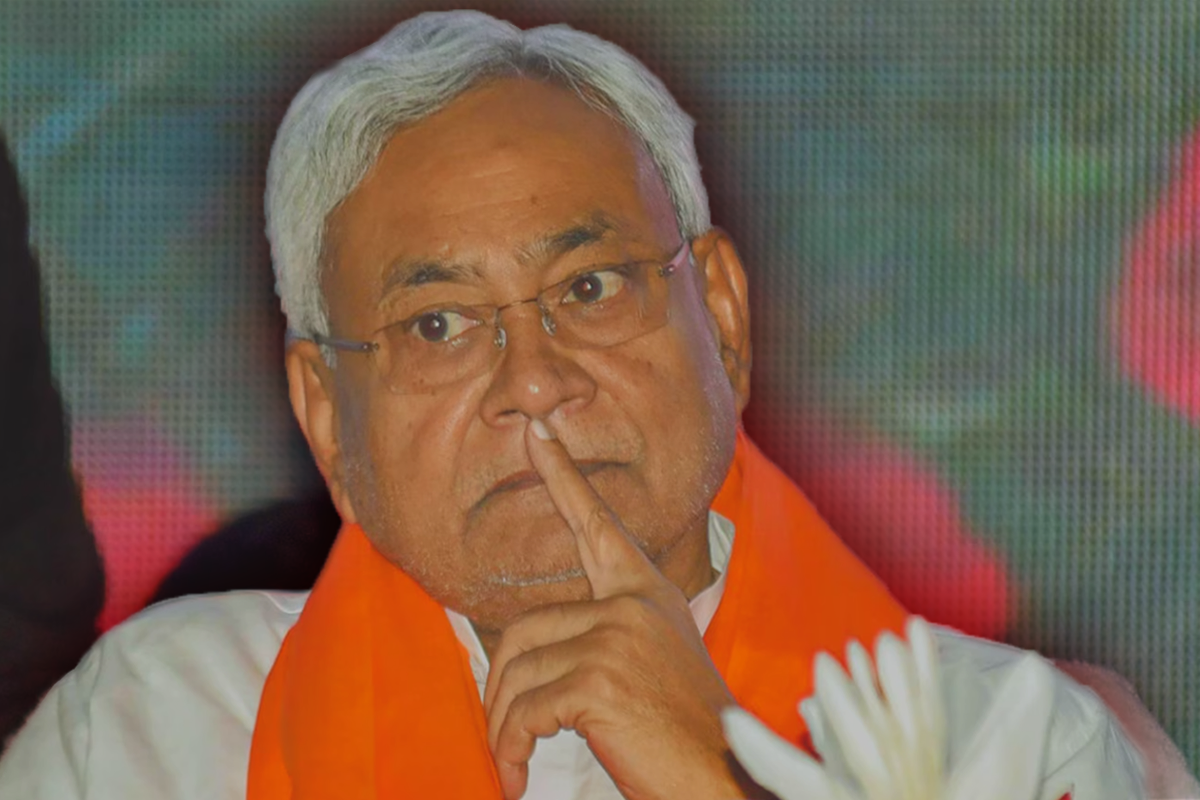The Rs 500 crore Bihar caste census, symbolically unveiled on Gandhi Jayanti and initially touted as the ‘Brahmastra’ to challenge the seemingly unassailable Modi-Shah duo, has taken a peculiar turn. Chief Minister Nitish Kumar, driven by his ambitious desire to position himself as a potential prime ministerial candidate, believed this move would catapult him to the forefront of national politics. However, the fallout from this ill-conceived and premature strategy now adds to a growing list of recent strategic failures in Nitish Kumar’s political career.
The I.N.D.I.A alliance, a diverse coalition of anti-BJP parties, saw the Bihar caste census as a game-changing weapon, akin to Mandal 3.0. They called for ‘jitni abadi utna haq,’ advocating for a nationwide caste census and promoting ‘social justice’ against the BJP’s ‘nationalist’ ideology. This move was expected to lay the foundation for their challenge to the Modi-led BJP in the upcoming 2024 General Elections.
The Congress party quickly seized upon the caste census results, highlighting the fact that the unreserved category comprised only 15.5% of the population and advocating for a system overhaul under the slogan of ‘rights according to population.’ However, before their new ship could set sail, critical issues arose that could potentially undermine their ambitious plans.
In his haste to take the first shot at his political nemesis and secure a leading role in the chaotic Opposition landscape, Nitish Kumar may have inadvertently made it nearly impossible for the diverse coalition of anti-BJP parties, known as I.N.D.I.A, to replicate the singular counter-narrative of ‘Hindutva vs. Social Justice’ in other states.
The credibility of the caste census has been widely questioned, not only by opposition leaders but also by some members of Nitish Kumar’s own party, Janata Dal United (JD(U)). JD(U) MP Sunil Kumar Pintu decried the census report as ‘unacceptable’ to the Teli community, who were recorded at a mere 2.81 percent. Similarly, JD(U) State Secretary and party spokesperson Pragati Mehta raised concerns about the underrepresentation of the Dhanuk community (recorded at 2.13%). Former Bihar Chief Minister and leader of the Hindustan Awam Morcha, Jitan Ram Manjhi, questioned the significant increase in the population of the Yadav community (recorded at 14%), alleging bias in favor of one community over other backward classes.
Prime Minister Modi, during a rally in Gwalior on the day the caste census was released, indirectly criticized the opposition for ‘playing with the feelings of the poor’ and dividing the nation ‘on the basis of caste.’ He singled out Rahul Gandhi’s ‘Jitni Abadi Utna Haq’ remark, in another public meeting on October 3 in Chhatisgarh, cautioning against the grave consequences of such thinking that could curtail the rights of minorities in the nation.
At its core, the call for social justice for the politically, socially, and economically marginalized had the potential to serve as a powerful counter-narrative to Modi’s overarching mission of “one nation, one identity” in post-2014 India. The ruling party had strategically prioritized the cultivation of a sense of national pride, with some degree of success. But critics have pointed out that Modi’s personal vision of social justice, encapsulated in the term “labharthi,” strips beneficiaries of their caste, class, and religious identities, which takes away their political agency and identity forged through their lived experiences as members of certain communities.
Instead of treating marginalized citizens as one-dimensional recipients of government schemes, a nuanced and comprehensive approach to social justice could have been the Opposition’s winning ticket and filled the united narrative void they have been struggling with since 2014. But it seems the Opposition lacked the means or the intensions to articulate this grand idea with ideological coherence and a compelling narrative that resonated with the masses and political analysts alike.
Unfortunately, it came across as just another tool in the toolbox of divisive politics. Caste groups in Bihar, where the experiment was launched, now find themselves questioning its accuracy and feeling threatened by it. The hurry and the desperation in their attempt was palpable.
Further, Nitish’s treating it as a game of one-upmanship, any hope of gaining a strategic advantage over the Modi-led BJP using “jitni abadi, utna haq” has quickly fizzled out for the Opposition. The Opposition finds itself back at the drawing board, needing to devise a more foolproof strategy capable of making a dent in public opinion.










